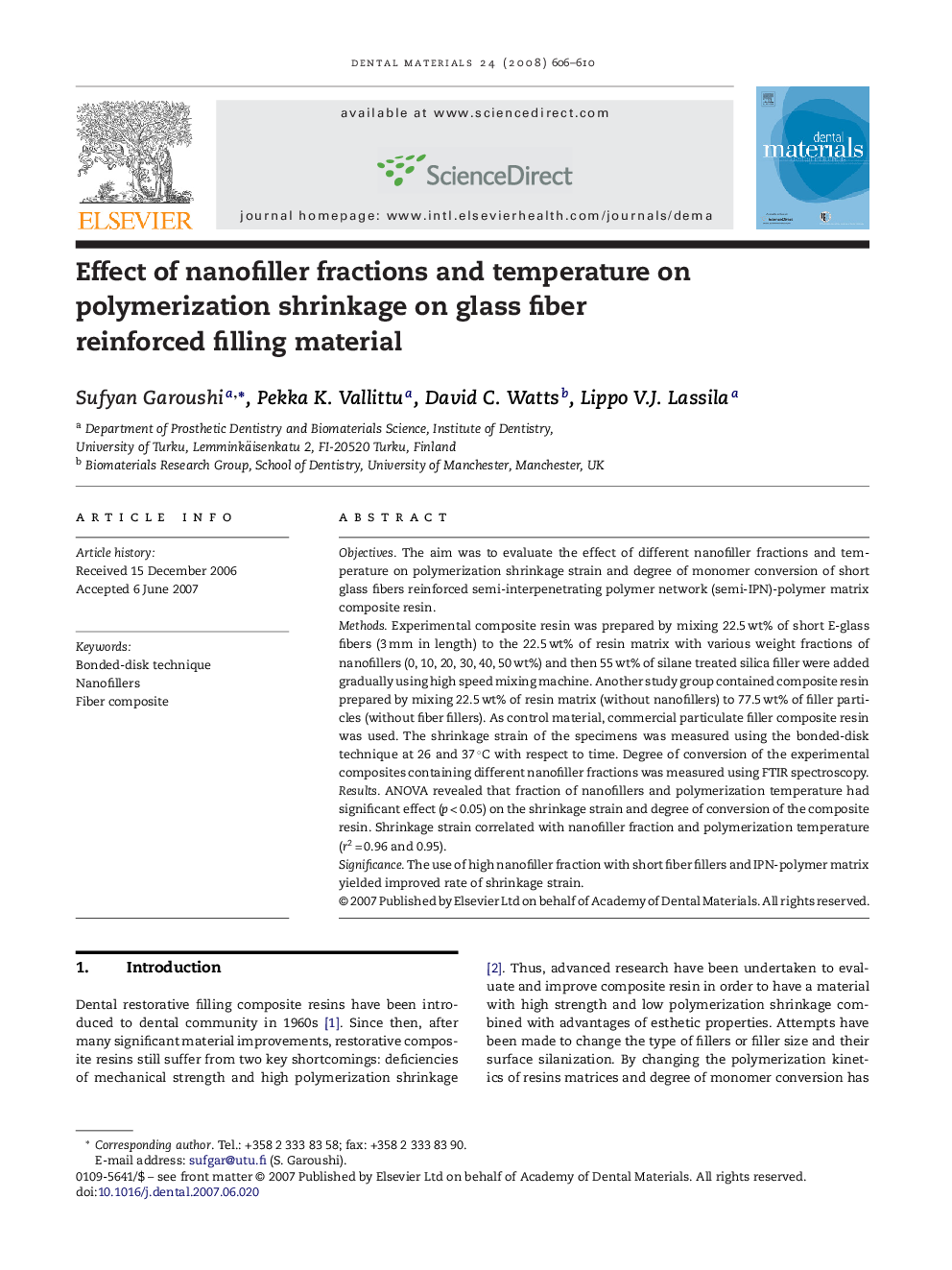| Article ID | Journal | Published Year | Pages | File Type |
|---|---|---|---|---|
| 1423208 | Dental Materials | 2008 | 5 Pages |
ObjectivesThe aim was to evaluate the effect of different nanofiller fractions and temperature on polymerization shrinkage strain and degree of monomer conversion of short glass fibers reinforced semi-interpenetrating polymer network (semi-IPN)-polymer matrix composite resin.MethodsExperimental composite resin was prepared by mixing 22.5 wt% of short E-glass fibers (3 mm in length) to the 22.5 wt% of resin matrix with various weight fractions of nanofillers (0, 10, 20, 30, 40, 50 wt%) and then 55 wt% of silane treated silica filler were added gradually using high speed mixing machine. Another study group contained composite resin prepared by mixing 22.5 wt% of resin matrix (without nanofillers) to 77.5 wt% of filler particles (without fiber fillers). As control material, commercial particulate filler composite resin was used. The shrinkage strain of the specimens was measured using the bonded-disk technique at 26 and 37 °C with respect to time. Degree of conversion of the experimental composites containing different nanofiller fractions was measured using FTIR spectroscopy.ResultsANOVA revealed that fraction of nanofillers and polymerization temperature had significant effect (p < 0.05) on the shrinkage strain and degree of conversion of the composite resin. Shrinkage strain correlated with nanofiller fraction and polymerization temperature (r2 = 0.96 and 0.95).SignificanceThe use of high nanofiller fraction with short fiber fillers and IPN-polymer matrix yielded improved rate of shrinkage strain.
